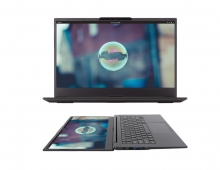
Linux moves into midrange Motorola phones
Motorola announced a new step this week in its plan to remake most of its mobile phone line with Linux, expanding use of the open-source operating system to midrange phones.
The E895 is a flip-phone design that uses a version of Linux from MontaVista Software, said Cheryln Chin, vice president for Motorola mobile phone marketing. Motorola expects to begin shipping it in Asia in the fourth quarter of the year and in other parts of the globe after that.
Motorola began selling Linux-powered mobile phones in 2003 but, until now, has used the OS only in high-end phones. Motorola expects to change that as software makers slim down Linux and hardware makers bulk up cell phone computing power, Chin said.
With the E895, Motorola has pushed the OS into midrange phones, and Linux should reach mass-market phones "probably in late 2006 or 2007," Chin said. More than half of Motorola's mobile phones will use Linux within 18 to 24 months, she predicted.
Linux is used for lower-level functions such as power and memory management and basic software. However, Motorola relies on Java, which it licenses from Sun Microsystems, for many applications. Indeed, Schaumberg, Ill.-based Motorola announced the phone this week at Sun's JavaOne conference in San Francisco.
Motorola is a lead developer of Java Mobile Edition, but the company sees room for improvement in power consumption and performance, Chin said.
Among Linux competitors already used on Motorola's phones are the company's own P2K, Microsoft's Windows Mobile and Symbian's operating system. In addition, Motorola's Linux relationship with MontaVista isn't exclusive, Chin said. "We will continue to evaluate options in the marketplace."
The E895 can play MP3 files and can accommodate up to 512MB of removable TransFlash memory. Its 1.3-mexapixel digital camera can be used for photos or video. And it's equipped with Bluetooth networking technology for synchronizing data and using wireless earpieces. Motorola didn't release expected prices.
From ZDNet





















